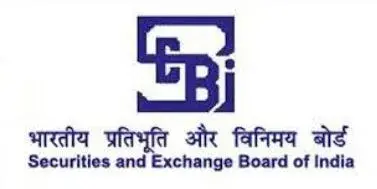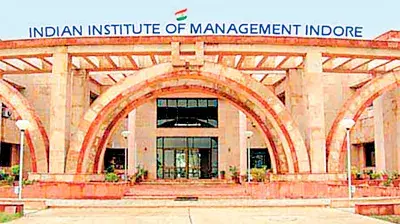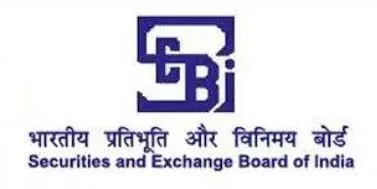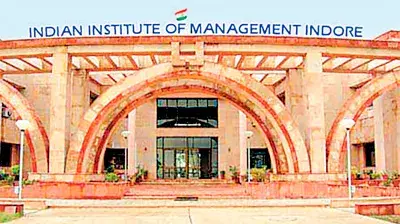India: Food Safety Auditing with great care

Source: www.fssai.gov.in
The rapidly growing economy of India has seen a massive development in various arenas of the commercial sector. Being an agro-based nation, vast improvement has been seen in the food industry. Being a vital aspect for life and survival, the aspect of safety and standards regarding the quality of the same are required to be monitored with great care and caution.
Regulation of Food Safety
In order to monitor the commercialization of the food and its products in India, the Government enforced the Food Safety and Standards Act, 2006 (hereinafter referred to as the “Act”). The Food Safety and Standards Authority of India (hereinafter referred to as “FSSAI”) is the authority for regulating food laws in India. FSSAI is responsible for laying down science-based standards for articles of food and to regulate their manufacture, storage, distribution, sale and import, to ensure availability of safe and wholesome food for human consumption and for matters connected therewith or incidental thereto.
With a view to ensure compliance to the Act, FSSAI and the regulations issued therefrom, The Government has introduced the Food Safety and Standards (Food Safety Auditing) Regulations, 2018 (hereinafter referred to as “Food Safety Auditing Regulations”) on August 28, 2018. The Food Safety Auditing Regulations provide a legal framework for recognition of Auditing Agencies, procedure for renewal/cancellation/suspension of recognition, terms and conditions of recognition, auditing procedure, duties of auditors, audit reporting and audit monitoring system.
The process of auditing shall involve classification of the category of food business requiring mandatory screening, ensure compliance to prescribed safety standards, inspection of newly established food business unit, maintain confidentiality in respect of commercial-in-confidence materials, conduct necessary follow ups to confirm adoption of corrective procedures by the food business operators, etc.
In order to keep a strict watch on the activities of the food business operators, the FSSAI has brought forward the Food Safety Auditing Regulations to check that such corporates abide by the requisite standards of food safety thereby safeguarding the interest of the consumers.
In order to keep a strict watch on the activities of the food business operators, the FSSAI has brought forward the Food Safety Auditing Regulations to check that such corporates abide by the requisite standards of food safety thereby safeguarding the interest of the consumers.
India: E-Commerce Companies to collect tax from sellers

Source: www.incometaxindia.gov.in
The setting up of ecommerce platforms has facilitated the provision of goods and services at the click of a button. The supply of goods and services creates an event taxable under the Goods and Services Tax (hereinafter referred to as “GST”) laws. The unified taxation systems help to eradicate the cascading effect and create a transparent system avoiding tax evasion.
Tax obligations for E-commerce players The Government has made the following provisions of the Act effective from October 1, 2018, vide notifications dated September 13, 2018, with the aim to prevent tax evasion:
-
Tax Deducted at Source (hereinafter referred to as “TDS”) at the rate of 1% from the payment made or credited to the supplier of taxable goods or services or both, where the total value of such supply, under a contract, exceeds INR 250,000 (USD 3475 approx.). [Section 51(1) of the Central GST Act, 2017].
- Tax Collected at Source (hereinafter referred to as “TCS”) at such rate not exceeding 1%, of the net value of taxable supplies made through it by other suppliers where the consideration with respect to such supplies is to be collected by the operator. [Section 52 of the Central GST Act, 2017].
SEBI facilitates investment in India

Source: www.sebi.gov.in
The Government is regularly devising schemes that boost the Indian market. With the rise in the availability of resources and coming up of policies promoting ease to do business in India, the country is increasingly becoming a favoured destination for the growth and development of business. The fastest growing economy not only encourages progress of business in the nation but also makes it an attractive investment option. With a view to secure investment for the Indian business sector, the Government has been making efforts with the help of introduction of investor friendly policies.
Regulated facilitation
Governed under the provisions of the Securities and Exchange Board of India Act, 1992 (hereinafter referred to as the “SEBI Act”), the Securities and Exchange Board of India (hereinafter referred to as the “SEBI”) is the market regulator of India which aims to protect the interests of investors in securities and to promote the development of, and to regulate the securities market and for matters connected there with or incidental thereto. Being a quasi-legislative, quasi-judicial, and quasi-executive body, SEBI drafts legal framework, judicial pronouncements and effective enforcement procedures for the smooth transactions of the securities.
SEBI is working towards aiding investment in Indian securities market taking recourse to the measures some of which are listed below :[1]
- Lowering the total expense ratio for equity oriented mutual fund schemes 1.25% for close-ended and interval scheme and 1% for other schemes, while capping the fund at 2.25% for equity-oriented schemes and 2% for other schemes, thereby making it less expensive for investors to invest in mutual funds;
- Not settle offences through the consent mechanism if it views the issue as having market-wide impact, affects the integrity of the market or results in loss to investors;
- More time granted to the Foreign Portfolio Investors for complying with KYC norms in India as per the circular issued by SEBI dated April 10, 2018;
- SEBI, Reserve Bank of India and Central Board of Direct Taxes have introduced a single application form for registration for Foreign Portfolio Investors in order to enhance the operational flexibility while ease of access to Indian capital markets; [2]
- Reduction of the time period for listing after initial public offering to 3 days which was earlier a time frame of 6 days, thereby freeing up the locked investor funds faster so as to benefit both issuers as well as investors;
- Offering a more secured platform for payments, the public issue process may be introduced by way of the use of Unified Payment Interface with facility of blocking the funds as a new payment mechanism for retail investor applications submitted through intermediaries;
- Approval of operationalisation of the budget announcement mandating large corporates to meet one-fourth of their financing needs through debt instruments;
- Eligible foreign entities permitting foreign entities shall now be permitted to have exposure to Indian commodity markets;
- Rules for reclassification of promoters have been changed. Promoters seeking reclassification and persons related to them should not hold more than 10% of the total voting power or exercise control over the listed entity or have special rights in the company;
- Restrictions shall now be imposed on fund raising through various share sales or making an open offer for Fugitive Economic Offenders;
- Interoperability of clearing corporations has now been permitted helping the market participants to consolidate their clearings and settle payment functions at a single clearing house thus reducing the effective trading cost for the investors.
With the objective of maximizing the investments in the Indian markets, SEBI has formulated investment guidelines that will be economical and favoured by the investors.
_____________________
[1]https://economictimes.indiatimes.com/mf/mf-news/sebi-cuts-mutual-fund-fees-bats-for-small-investors/articleshow/65866171.cms
[2]https://timesofindia.indiatimes.com/business/india-business/now-fpis-need-to-fill-only-one-form-for-registration-bank-a/c-demat-and-pan/articleshow/65549430.cms
India: IIM Executive Programme in Management liable for GST

Source:
https://www.iimidr.ac.in/
The tax regime requires compulsory contribution to be made by the citizens to the Government in order to enable them carry out the developmental activities for the country. The recent introduction of the Goods and Services Tax (hereinafter referred to as “GST”) has subsumed the multiple taxes prevalent in the Indian system including Central Excise Duty, Service Tax, Entertainment Tax, Value Added Tax/Sales Tax, Octroi and Entry tax, etc. This single taxation, applicable only on value addition made at each stage with respect to the goods and services.
New subject covered under GST
The applicability of GST on educational services was not clear owing to the contrary notifications issued by the Government in this regard. As per the provisions of GST notification no.11/ 2017 the tax applicable on the education services is 18%. However, in respect of another GST notification no. 12/ 2017 the services provided by an educational institution to its students, faculty and staff.
IIM Executive Post Graduation Programme now taxable
The Indian Institute of Management-Indore (hereinafter referred to as “IIM”) had filed an application with the Madhya Pradesh Authority for Advance Ruling (hereinafter referred to as “AAR”) to seek clarity on the issue if the one-year Executive Post Graduate Programme in Management falls under the purview of GST, while the provisions of the Indian Institute of Management Act, 2017 exempted the same from the tax.
The AAR clarified that no ambiguity persisted regarding the applicability of GST on educational services.[3] The Government does not intend to relieve all education programmes from the ambit of GST. The Executive Development Programme in Management offered by IIM is subject to the applicability of GST owing to the specific notification issued in this regard and the only specific courses provided by IIM are exempted from tax benefits which include 2-year full time Masters of Business Administration Course and the 5-year integrated programme in Management.
________________________



 FSSAI has introduced the Food Safety Auditing Regulations in order to ensure that the food business operators comply with the requisite standards of food safety.
FSSAI has introduced the Food Safety Auditing Regulations in order to ensure that the food business operators comply with the requisite standards of food safety.  Ecommerce companies would be required to comply increased TDS/TCS compliances from October 1, 2018.
Ecommerce companies would be required to comply increased TDS/TCS compliances from October 1, 2018.  SEBI devises investor friendly guidelines to promote the growth of Indian securities market.
SEBI devises investor friendly guidelines to promote the growth of Indian securities market. The Executive Development Programme in Management offered by IIM is now subject to GST as per Madhya Pradesh Authority for Advance Ruling.
The Executive Development Programme in Management offered by IIM is now subject to GST as per Madhya Pradesh Authority for Advance Ruling.